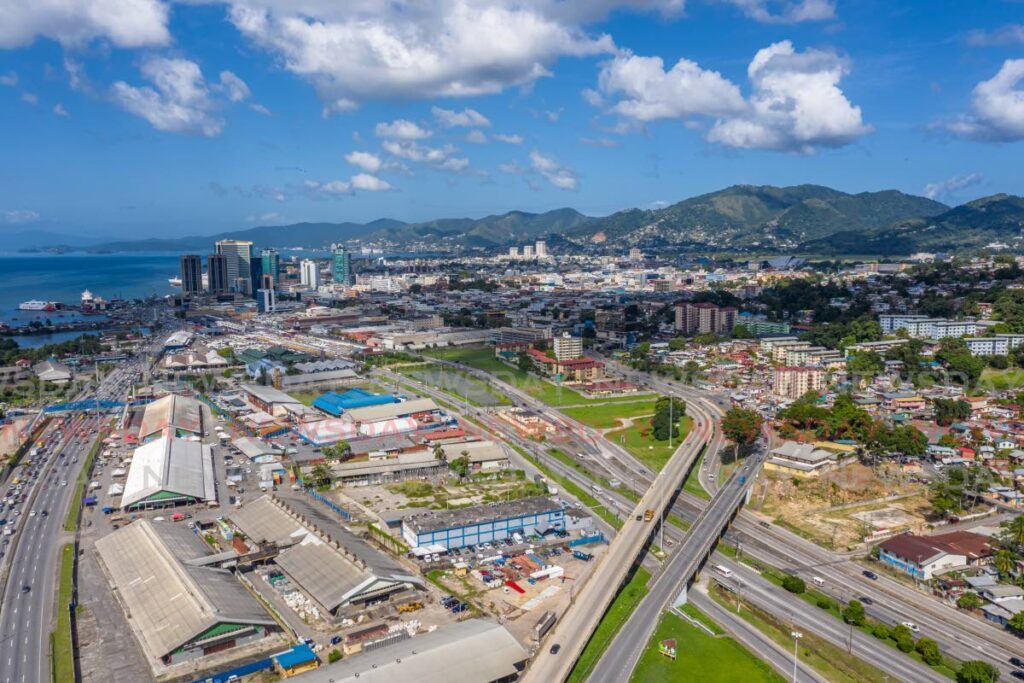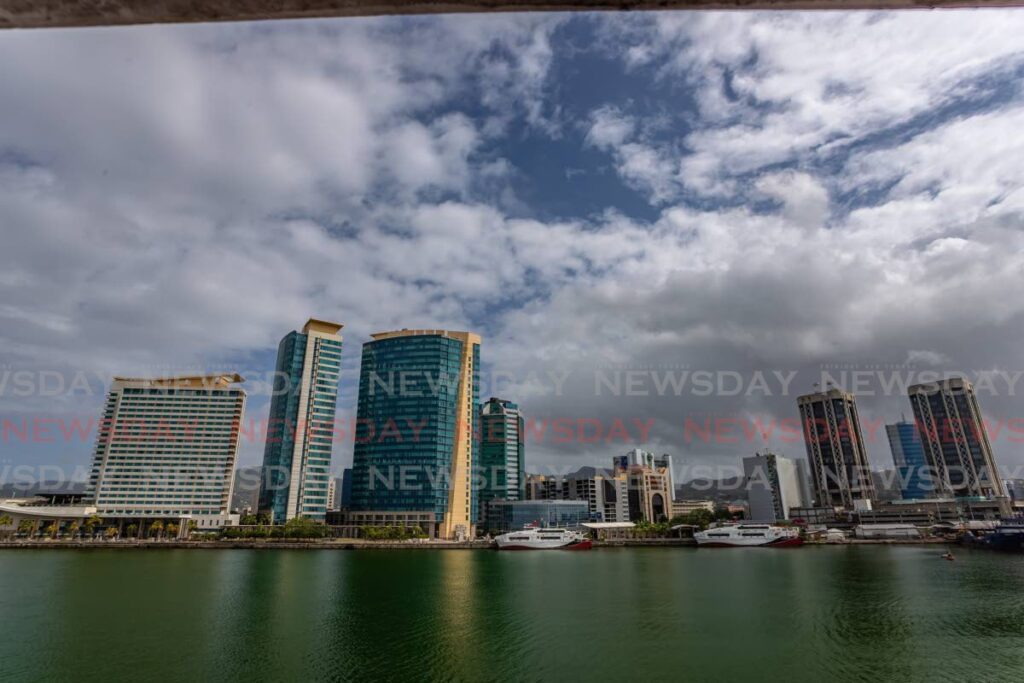SEZs will make it easier to attract local, foreign investment

The recently proclaimed Special Economic Zone (SEZ) Act, 2022 will make it easier for local and foreign private sector interests to invest in TT. It is also expected to assist with diversification of TT’s economy.
These were some of the conclusions reached during a recent panel discussion during the TT Chamber of Industry and Commerce’s forum: Private Sector Opportunities in the Special Economic Zones on September 19 at the chamber’s conference room, Columbus Circle, Westmoorings.
Acting Trade and Industry Ministry permanent secretary Randall Karim said the legislation is the most pro-private sector piece of legislation implemented in TT to date. It offers several incentives for new investors and is retroactive to February 1, 2022.
The act provides licences to investors as operators, SEZ enterprises or single zones. SEZ operators act as landlords of special economic zones; SEZ enterprises conduct business within those spaces managed by operators; and single zone enterprises are large stand-alone operations.
Incentives include corporation tax rate of 15 per cent, exceptions from import duty on the importation of certain approved items, property tax exemptions, VAT concessions, an enhanced initial capital allowance on expenditure incurred in the provision of machinery or plant, and stamp duty exemptions on certain instruments.

Speaking earlier at the same event, Trade and Industry Minister Paula Gopee-Scoon said Cabinet has designated several spaces as special economic zones under the act, which will be announced during the budget presentation on September 30. The minister said the act was fully proclaimed on July 5, 2024, and robust regulations, a new incentive framework and a fully operational SEZ Authority have been created.
Karim said he thinks the SEZ regime can be truly transformational.
“It is the single most comprehensive holistic suite of incentives that can promote non-energy sector investment. We all speak about economic diversification and how to achieve it.
“How do you achieve economic diversification and transformation in an accelerated manner? The first way is you must have economic spaces for people to operate and when you look at the existing portfolio of land assets held by the state, over 90 per cent of the land owned by government is occupied and developed. You do need to roll out spaces for businesses to occupy.”
Karim said the state model of being landowner and landlord for economic spaces is an old model and private sector investment in infrastructure was necessary.
“If you are a private-sector person, and have corporate real estate, and want to have a floor of the building be an innovation hub, you apply under an operator licence, have a floor of the building designated as a specialised zone and offer client SEZ enterprise licences through the SEZ Authority. The legislation is wide and diverse and offers formulations of various private sector interests in the operation of zones.”
InvesTT president Sekou Alleyne said in presenting TT as an investment project over the years, the company has increased competition with other regions and locations.
“Investors won’t only invest on the basis of incentives, they will look at industrial parks, infrastructure, real estate, road access, telecommunications infrastructure, etc. We are working closely with the SEZ Authority, the Trade and Industry Ministry and other chambers."
Alleyne said based on research, there are billions of dollars flowing into SEZs worldwide. He said he was interested to see what would happen when the SEZs were launched in TT.
“Recently we met with 50 investors across sectors like manufacturing, logistics, process outsourcing, those were the people who were sensitised about this topic and were specific about acquiring SEZ licences and were curious about the other attributes TT has to offer. We’re expecting at least $200 million in investment and with two major projects outside of that we’ll have $1 billion.”

He said international investors are looking for a place to produce that has the infrastructure.
“They can leverage the SEZ. Locals who are already in export markets are looking for places to expand into new export growth markets like Guyana, Suriname, etc and will get the opportunity with the advent of SEZ parks and the infrastructure that’s being developed and still exists.
“The opportunity is not just for the single-zone investors. There’s an opportunity for locals for the development of a business park, commercial office spaces that are close to the labour pool, that have the infrastructure in place and are close to amenities.”
Ernst & Young (EY) Caribbean executive chairman Wade George said Jamaica had amended their legislation in 2016, had employed up to 60,000 people and have ambitious plans for the expansion of their SEZ regime.
“There’s competition in the region, in Costa Rica and Guyana, but now we have something to work with. It redounds to us in the private sector to get involved, whether it be a SEZ enterprise in an existing zone, or development of a commercial zone. I’m pleased we've gotten to a place where we've been facilitated sufficiently by the government and the rest is up to us.”
George said the sectors under which investors can apply for a licence include business-process outsourcing, information and communications technology, creative industries, manufacturing, maritime services, aviation services, fish and fish processing, agriculture and agro-processing, financial services, medical tourism services, logistics and distribution.
For micro-enterprises to be considered as investors, they would have to have a minimum investment of US$10,000 (after January 31, 2022) with a sales turnover of less than $250,000 and one-five employees. Small- and medium-enterprises would have US$50,000 in investment, with a sales turnover of more than $250,000 up to $10 million and employ six-50 people. Large enterprises would have US$1 million with a sales turnover of $10 million and employ more than 50 people.
Karim said the eligibility criteria ranges dramatically depending on the size of the investor.
“For micro-enterprises, the investment required is only US$10,000, if you’re investing more than that you’re ineligible as a micro-enterprise. We deliberately tiered the investments because we know there are very small micro-enterprises compared to the large manufacturers.”
George said applicants would need to have a completed anti-money laundering/countering the finance of terrorism/financing the proliferation of weapons of mass destruction risk-assessment questionnaire (know your customer); evidence of sufficient funds to meet eligibility criteria, a five-year operation plan; consent for entry from inspectors; compliance with relevant regulations and permits; and an economic substance test applied by the SEZ Authority to ensure all eligibility criteria are met in relation to proposed income-generating activities.

In addition, he said there would be ongoing reporting requirements, including the filing required under TT laws such as tax returns, VAT returns, annual corporate filing, single zone and SEZs would have to file semi-annual reports. He said all three entities would have to file annual operation plans, submit annual audited financial statements, and data and information requested by the SEZ Authority.
Karim said the companies must meet an economic substance test, that is, they cannot be a shell company, and it must have workers.
“We are making sure we attract a certain level of employment generation. There are a range of job types and lots of opportunities for skilled nationals, secondary school children, skilled university graduates, etc.”
According to the SEZ legislation, the SEZ Authority is responsible for supervising and regulating SEZs, ensuring they operate in a modern and productive environment that supports investment (both foreign and local) and economic diversification. They are to process applications and issue licences with the approval of the minister of trade and industry. They are to advise the minister on zone designations, policies and performance reviews. They are to mediate and resolve any disputes between operators and enterprises under the guidelines and codes of practice that they are responsible for formulating.
SEZ Authority CEO Stephen De Gannes said the legislation is aimed at the non-energy sector. He said potential investors can approach the authority with their business plan and based on discussions, it will submit the application and make representation to the minister, who issues the licences. He said the authority offers consultations for investors who are not sure how the investment applies to them.
De Gannes said the authority is collaborating with many agencies and ministries to ensure investors have a smooth process. These include the Town and Country Planning Division (TCPD), Occupational Safety and Health Agency (OSHA), Environmental Management Authority (EMA), National Security Ministry, the Trade and Industry Ministry, and the Board of Inland Revenue, among others.
Acknowledging concerns about the length of the process, Karim said under the act, service standards associated with the facilitation process have been defined into law.
“We have put a statutory responsibility on the SEZ Authority and the minister to grant licenses within clearly defined periods of time. From the time an application is made to the SEZ Authority, it has x number of days to review the application, after the review period it has x number of days to contact the applicant, the applicant in turn has x number of days to respond. The minister has seven days to grant a licence after a recommendation has been made by the SEZ Authority.”
He said delays in the process are often caused by less than robust applications. He said the authority will be putting out explanatory guides and conducting sensitisation sessions to ensure the application documents, accompanying documents and attachments were made as clear as possible.
“We did hire a consultant, someone who worked at Republic Bank at a very senior level and that person has been working with the authority to prepare detailed process maps, setting service standards internally for its staff so when an application is made to the authority, they have a clear checklist and process to follow.”
Karim said the authority’s staff will not be hired through the regular public service. He was addressing concerns that the process would be slowed down due to bureaucratic practices where OJT and contract staff are hired and then leave when their contract expires, leaving applications in the lurch.
“CEO De Gannes has an approved organisational structure and he’s already hiring staff. It won't be short-term employees, they will be full-time employees of the authority, and once recruited, you won't have the normal labour management issues you would see in a public sector organisation.”
Karim said the regime is not meant to cause people who are paying taxes to not pay taxes.
“That would be a foolish prospect from a public sector perspective. We are trying to incentivise new investment. It’s new investment in new areas of economic activity. Each business proposal will be considered because you could be opening a new line, a new product which could potentially qualify, or it could be a completely new business from what you’re accustomed to. We’re open to a range of investment prospects. It is not meant to lose government revenue.”
For more information, go to https://info.ttbizlink.gov.tt/special-economic-zones.
– with reporting by Mya Quamie

Comments
"SEZs will make it easier to attract local, foreign investment"